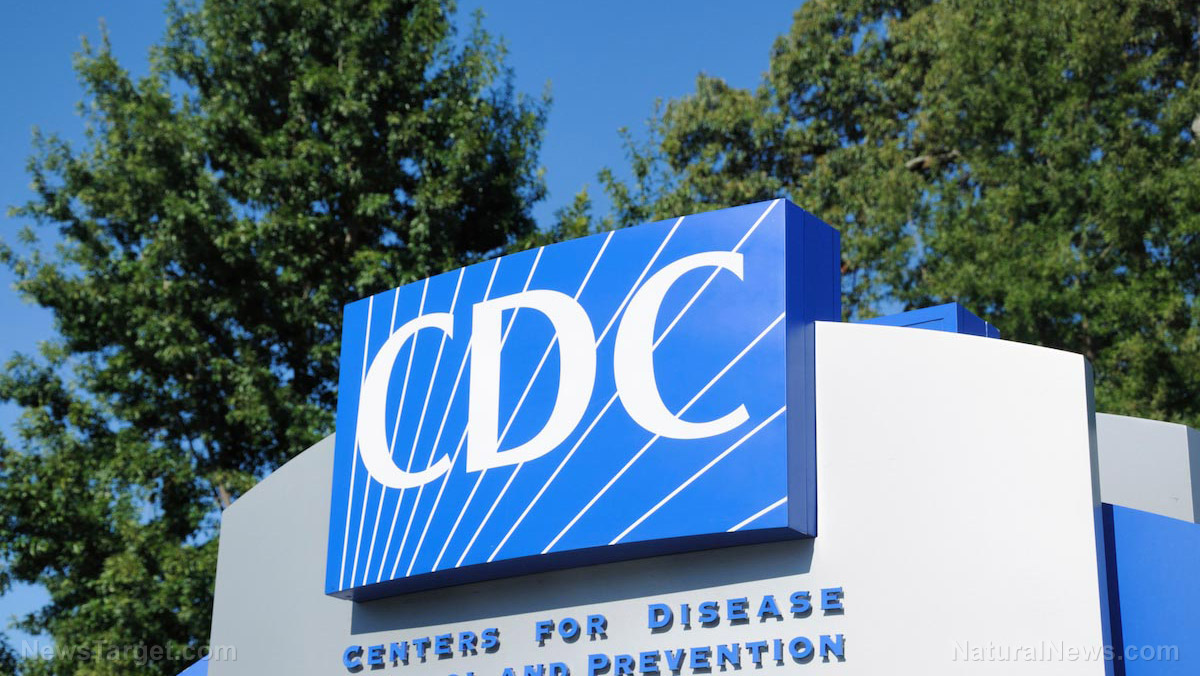These over-the-counter drugs are linked to rising bowel cancer cases in young adults
06/18/2025 / By Lance D Johnson

The modern healthcare system often fails to protect patients, instead masking symptoms with quick-fix medications while deadly diseases like bowel cancer silently progress. A groundbreaking study funded by Cancer Research UK reveals that common over-the-counter drugs — including pain relievers, indigestion medications, and hemorrhoid treatments—may serve as early red flags for undiagnosed cancers. Yet, instead of investigating root causes, conventional medicine continues pushing pharmaceuticals that could be exacerbating the crisis. With bowel cancer rates skyrocketing among adults under 50 — a demographic once considered low-risk — the medical establishment’s reliance on reactive treatments over prevention is proving deadly.
Key points:
- Over-the-counter pain, indigestion, and hemorrhoid medications may signal undetected bowel cancer up to 15 months before diagnosis.
- England has seen a 3.6% annual rise in early-onset bowel cancer cases, baffling doctors who overlook environmental and lifestyle factors.
- Proton pump inhibitors (PPIs) and other acid-reducing drugs are linked to long-term gut damage, potentially increasing cancer risk.
- Early detection saves lives: 90% of stage-one bowel cancer patients survive five years, compared to just 10% at stage four.
- Corporate medicine prioritizes profit over prevention, leaving patients to self-treat symptoms while cancers advance unchecked.
The silent epidemic: Why are young adults dying from bowel cancer?
Bowel cancer was once considered a disease of the elderly, but today, adults in their 20s, 30s, and 40s are facing alarming diagnosis rates. England’s early-onset cases have surged faster than nearly any other nation, yet mainstream medicine refuses to confront the toxic culprits: processed foods, microplastics, pharmaceutical side effects, and a healthcare system that dismisses symptoms until it’s too late.
Dame Deborah James, who died at 40 after a public battle with bowel cancer, famously warned: “If something doesn’t feel right, push for answers — don’t let them fob you off with ‘it’s just IBS.’” Her plea echoes the frustration of thousands whose symptoms were misdiagnosed as gynecological issues or irritable bowel syndrome (IBS) while tumors grew undetected.
The medication trap: How common drugs fuel the crisis
Proton pump inhibitors (PPIs), used by millions for acid reflux, are among the most insidious offenders. Long-term PPI use disrupts gut microbiota, increases intestinal permeability, and has been linked to a 42% higher risk of stomach cancer in some studies. Similarly, hemorrhoid creams and laxatives — often purchased before a cancer diagnosis — mask symptoms like rectal bleeding, delaying critical investigations.
Professor Chris Cardwell, a cancer epidemiologist, admits: “These changes in specific medications could act as an alert for doctors to consider earlier cancer investigation.” Yet, instead of questioning why patients need these drugs in the first place, the system waits for tumors to form.
The Danish study linking frequent hemorrhoid-related GP visits to later bowel cancer diagnoses exposes a chilling truth: patients are gaslit into treating symptoms while diseases metastasize. Rectal bleeding, unexplained weight loss, and chronic fatigue should trigger immediate testing, not a prescription for more pills.
Key findings on PPIs and cancer risk
PPIs double gastric cancer risk
- A meta-analysis of 24 studies (8+ million participants) found that PPI users had an 82% higher risk of gastric cancer compared to non-users.
- Non-cardiac gastric cancer risk skyrocketed by 175% (RR = 2.75), with long-term use (>3 years) increasing risk by 132% (RR = 2.32).
- Notably, colorectal cancer risk was not significantly elevated, suggesting PPIs primarily impact the stomach.
PPIs worsen outcomes in colorectal cancer patients
- A Taiwanese cohort study (20,889 PPI users vs. non-users) found that high-dose PPI use (>60 cumulative defined daily doses) increased all-cause mortality by 10% in colorectal cancer patients.
- Paradoxically, PPIs reduced recurrence risk by 16%, indicating a complex, dose-dependent relationship that warrants further study.
PPIs linked to higher mortality across the board
- Compared to H2 blockers (e.g., famotidine), PPI users faced a 25% greater risk of death.
- Extended PPI use was correlated with even higher fatality rates.
How PPIs and other drugs fuel the crisis
- Gut microbiome destruction: Long-term PPI use alters gut bacteria, increases intestinal permeability (“leaky gut”), and may promote carcinogenic changes.
- Masking deadly symptoms: Hemorrhoid creams and laxatives hide rectal bleeding, while PPIs suppress acid reflux that could signal underlying malignancies.
- Environmental and lifestyle neglect: Processed foods, microplastics, and pharmaceutical side effects are overlooked in favor of quick-fix prescriptions.
Medical systems must shift from reactive drug prescriptions to proactive prevention:
- Early testing for red flags: Rectal bleeding, unexplained weight loss, and persistent fatigue should trigger immediate colonoscopies—not more medications.
- Natural alternatives: Dietary changes (e.g., anti-inflammatory diets, probiotics) and detoxification may reduce reliance on PPIs.
- Corporate medicine reform: With Big Pharma profiting from chronic illness, independent research must prioritize patient safety over profit.
The evidence is clear: PPIs and symptom-masking drugs are contributing to a silent epidemic of preventable cancers. While more prospective studies are needed, the current data demands urgent action — from stricter PPI prescribing guidelines to systemic prevention strategies. As Professor Chris Cardwell admits, prescription trends should serve as early cancer warnings. The question remains: Will modern medicine finally listen?
Sources include:
Submit a correction >>
Tagged Under:
Big Pharma, Bowel Cancer, gut health, health science, hemorrhoid treatments, IBS, over-the-counter drugs, pharmaceutical fraud, Prescription drugs, Proton pump inhibitors, real investigations, research
This article may contain statements that reflect the opinion of the author





















